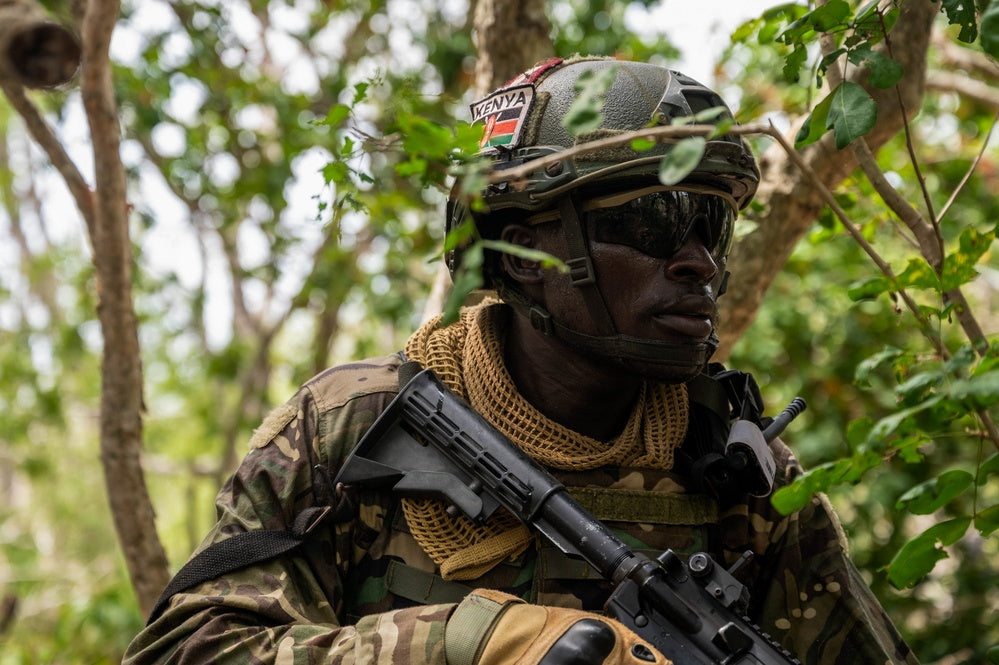
Kenyan officials meet with Haiti police to discuss gangfighting force
PHOTO CAPTION: Representational photo via U.S. Defense Visual Information Distribution Service
By Ralph Tedy Erol and Sarah Morland
PORT-AU-PRINCE (Reuters) -A Kenyan delegation met with leaders of Haiti's national police on Monday, a day after arriving in the country as it assesses leading a possible United Nations-backed multinational security force to help police fight escalating gang warfare.
"We are here to assess the needs of Haiti's national police, better understand the situation and do our best to help the Haitian people," Kenyan ambassador and head of bilateral and political affairs, George Orina, said in a Haitian government statement.
The 10-person Kenyan delegation met senior police staff early on Monday, the statement said, and will stay until Wednesday, holding further meetings with national police and Haiti's Prime Minister, Ariel Henry.
Henry's government first requested international security assistance last October, but despite repeated calls from the United Nations, the call went unanswered until Kenya said it was prepared to lead such a force last month.
A source told Reuters the Kenyan officials, who were at the police headquarters in Port-au-Prince on Monday, had met with police chief Frantz Elbe.
With scarce resources, Haiti's police have been battling powerful gangs now estimated to control large parts of the country, where residents grapple with severe food shortages, frequent killings, kidnappings and widespread sexual violence.
Since the start of this year, the U.N. estimates at least 2,439 people have been killed and some 200,000 internally displaced amid frequent turf wars and as fighting expands to farmlands north of the capital.
After the Kenyan assessment, the plan to send a security force to Haiti will pass to a vote at the U.N. Security Council. The United States has already voiced its support, though the date remains undecided.
'ROBUST USE OF FORCE'
In a report last week, Guterres told the Security Council a "robust use of force" by a multinational police deployment and use of military assets were needed to restore order and disarm gangs.
Guterres said the support should focus on re-establishing access routes for basic services. Foreign-backed aid groups have been forced to shut down operations in recent days given an escalation in the violence.
Human Rights Watch has called for the planned multinational force to include safeguards to prevent abuses. Previous interventions left behind a devastating cholera epidemic, as well as over a hundred allegations of sexual abuse.
Countries have also been wary of backing Henry's unelected government.
Henry, who is facing international pressure to broaden political consensus and include more people in decision-making, has in turn pledged to hold elections once security is re-established.
The government statement said Henry had reiterated the need for establish free movement of people and goods and that lessons had been learned from previous missions in Haiti.
"Kenyan troops benefit from much experience, having served in places such as Kosovo, Yugoslavia, Sierra Leone, East Timor, Somalia, Sudan and Angola," it said.
(Reporting by Ralph Tedy Erol and Sarah Morland; Editing by Isabel Woodford and Rosalba O'Brien)












